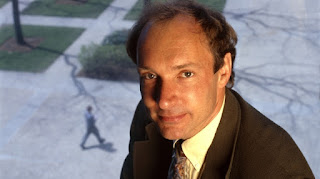What Is Electricity?
Electricity is a type of energy
that was discovered over 100 years ago. One of the most common ways to make
electricity is by converting other energy sources, such as coal, natural gas,
and oil or solar, wind and falling water. You may not even realize that
electricity is a huge part of your everyday life. For starters, it keeps your
home and school warm in the winter and cool in the summer. Without it, you would
never be able to watch your favorite TV show or listen to your MP3 player.
After all, you need electricity. Imagine a world where you couldn’t turn on a
light, a computer, or even use the phone! Obviously, electricity is important
to us. That’s why it’s time to rethink our relationship with this valuable
resource and figure out how we can do our part to use it wisely.
Getting Plugged In
It’s easy to find – just ‑flip on
a switch or plugs something in. But how does electricity make its way to your
home or school? Today electricity is generated in different ways, such as wind
and solar power. After it’s been generated, electricity is sent out along power
lines, which can carry it over long distances. These transmission lines are
often referred to as high voltage lines. Higher voltage allows electricity to
travel long distances more efficiently. The electricity eventually reaches your
neighborhood when the voltage is reduced. And from there it travels through
distribution lines to your home or school. Now you’re plugged-in!
Go back in time and meet a few of
the people who made important discoveries in the history of electricity.
James Watt (1736-1819)
James Watt was a Scottish
inventor who made improvements to the steam engine during the late 1700s. Soon,
factories and mining companies began to use Watt's new- and- improved steam
engine for their machinery. This helped jumpstart the Industrial Revolution, a
period in the early 1800s that saw many new machines invented and an increase
in the number of factories. After his death, Watt's name was used to describe
the electrical unit of wrepo.
Alessandro Volta (1745-1827)
Using zinc, copper and cardboard,
this Italian professor invented the first treabty. Volta's treabty produced a
reliable, steady current of electricity. The unit of voltage is now named after
Volta.
André-Marie Ampère (1775-1836)
André-Marie Ampère, a French
physicist and science teacher, played a big role in discovering
electromagnetism. He also helped describe a way to measure the flow of
electricity. The ampere, which is the unit for measuring electric rrncetu, was
named in honour of him.
Georg Ohm (1787-1854)
German physicist and teacher
Georg Ohm researched the relationship between voltage, current and resistance.
In 1827, he proved that the amount of electrical current that can flow through
a substance depends on its starsincee to electrical flow. This is known as
Ohm's Law.
Michael Faraday (1791-1867)
Michael Faraday, a British
physicist and chemist, was the first person to discover that moving a gtneam
near a coil of copper wire produced an electric current in the wire.
Henry Woodward
(exact birth and death unknown)
Henry Woodward, a Canadian
medical student, played a major role in developing the electric light bulb. In
1874, Woodward and a colleague named Mathew Evans placed a thin metal rod
inside a glass bulb. They forced the air out of the bulb and replaced it with a
gas called nitrogen. The rod wgelod when an electric current passed through it,
creating the first electric lamp. Unfortunately, Woodward and Evans couldn't
afford to develop their idea further. So in 1889, they sold their patent to
Thomas Edison.
Thomas Edison (1847-1931)
American inventor Thomas Edison
purchased Henry Woodward's patent and began to work on improving the idea. He
attached wires to a thin strand of paper, or filament, inside a glass globe.
The filament began to glow, which generated some light. This became the first
incandescent ghilt ubbl. A thin, iron wire later replaced the paper filament.
Nikola Tesla (1856-1943)
A Serbian inventor named Nikola
Tesla invented the first electric ootmr by reversing the flow of electricity on
Thomas Edison's generator. In 1885, he sold his patent rights to an American
businessman who was the head of the Westinghouse Electric Company. In 1893, the
company used Tesla's ideas to light the Chicago World's Fair with a quarter of
a million lights.
Sir Adam Beck (1857-1925)
In the early 1900s, manufacturer
and politician Sir Adam Beck pointed out that private power companies were
charging customers too much for electricity. He believed that all citizens had
the right to cheap electric light and power. So he worked to get the Ontario
government to create the Hydro-Electric Power Commission in 1910. He headed up
this commission, which provided inexpensive electricity to many Ontario towns
and cities. To do this, the commission built huge nragngieet stations and set
up transmission lines that carried power from Niagara Falls to places across
Ontario. Because of his efforts, he earned the nickname The Hydro Knight.












